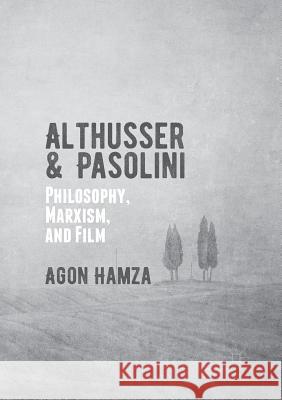Althusser and Pasolini: Philosophy, Marxism, and Film » książka
topmenu
Althusser and Pasolini: Philosophy, Marxism, and Film
ISBN-13: 9781349953981 / Angielski / Miękka / 2018 / 202 str.
Kategorie BISAC:
Wydawca:
Palgrave MacMillan
Język:
Angielski
ISBN-13:
9781349953981
Rok wydania:
2018
Wydanie:
Softcover Repri
Ilość stron:
202
Waga:
0.26 kg
Wymiary:
21.01 x 14.81 x 1.17
Oprawa:
Miękka
Wolumenów:
01
Dodatkowe informacje:
Wydanie ilustrowane











